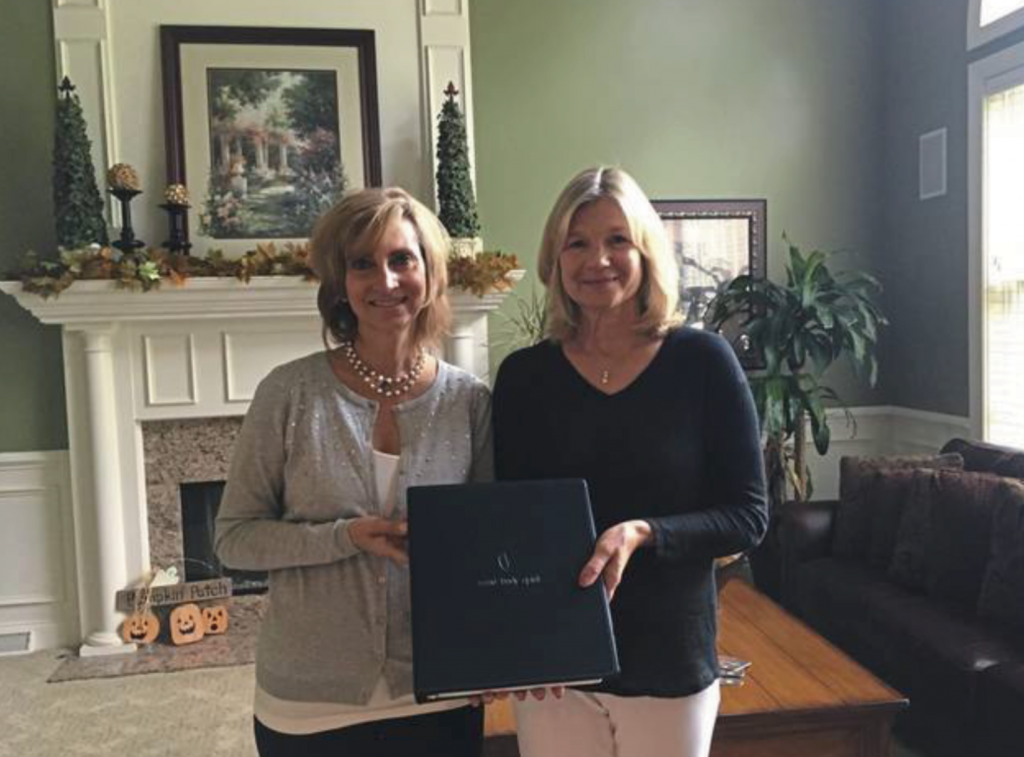October 8, 2019
Faith & Gratitude offers cancer patients empowerment, guidance

When Lori Ball was diagnosed with ovarian cancer shortly before Christmas 2015, it rocked her and her family’s world. The North Huntingdon resident recalls preparing herself to do battle with her illness, and anticipating a hospital team providing a “holistic approach.”
Following surgery, and throughout 18 weeks of chemotherapy, Ball, 54, recalls her treatment focusing primarily — and understandably — on medical care. “I really felt there would be a team around me to help me with my immune system. They treat the cancer. That’s what they are trained to do,” Ball says. Overwhelmed with pamphlets and trying to make treatment decisions, she recalls a large gap in finding both information and emotional support as she began navigating her health crisis.
Ball, who calls herself a cancer survivor, has made it her mission to do research and provide information beyond the traditional to other patients. Two years ago, she formed the nonprofit Faith & Gratitude, partnering with best friend Kathy Alexander, 54, of North Huntingdon.
“I never felt (cancer) was a death sentence. I thought I was supposed to be a messenger,” Ball says. Discovering her experience was not unique, Ball shares on the website some of the challenges cancer patients face. Patients need to quickly digest a great deal of information, from considering participation in research studies, to how best to tolerate chemotherapy, to mulling changes in diet and lifestyle, Ball says. Traditional medical practitioners, she adds, are not necessarily going to suggest complementary holistic care.
The nonprofit’s mission is to provide empowerment and education to individuals facing cancer, Alexander says. “What can you do to complement regular standard of care?” she asks. “Nothing like this existed when my friends and family members, or Lori, had cancer,” Alexander says.
Helping self and others
Hoping to “fill the gap,” Ball says her first vision was to produce cancer resource guides for patients, which she and Alexander have completed and are distributing at no cost. Organizational tools within the 250 binders they have created feature space for calendars, appointments, lab test results and self-care tips, including inspirational quotes.
“It’s not a ‘be all, end all.’ It’s a jumping off point. Our hope is that they take it, use it and have that feeling of ‘I’m doing something positive to help myself to make my journey easier,’ ” Ball says.
“We are not an organization to take the place of someone’s doctor. We are there to provide information and encourage people to be self-advocates but to make sure their treatment plan is done in conjunction with their doctor,” Alexander adds.
The two also hold local cancer wellness seminars, open to men and women. Participants can hear from other patients, speakers who address nutrition, acupuncture, the benefits of essential oils, meditation and journaling. They can learn where in their communities they can purchase local organic produce or buy a wig, for example.
According to the Mayo Clinic, such complementary care can help cancer patients, from alleviating anxiety and stress to aiding with physical symptoms including nausea and pain. Ball finds journaling particularly helpful for stress relief. “Just to be able to get negative thoughts out of your mind, onto paper, and rid your mind of chaos,” she says.
Several doctors and health care providers have embraced the binders, and recommend the organization’s seminars, she says. They hope to make their website more interactive as well, possibly posting meditation videos.
The organization recently hosted its second annual “A Celebration of Art & Giving,” raising funds to benefit cancer patients in the Pittsburgh community. They also have received support from area companies and individuals in their efforts to keep their programming free.
Moving forward Faith & Gratitude’s 2020 initiatives include providing additional patient resource guides, expanding cancer wellness seminars, holding more one-on-one meetings with patients and sharing new cancer research findings from evidence-based sources.